
Sgt. Pepper's Lonely Hearts Club Band is the eighth studio album by the English rock band the Beatles. Released on 26 May 1967, Sgt. Pepper is regarded by musicologists as an early concept album that advanced the roles of sound composition, extended form, psychedelic imagery, record sleeves, and the producer in popular music. The album had an immediate cross-generational impact and was associated with numerous touchstones of the era's youth culture, such as fashion, drugs, mysticism, and a sense of optimism and empowerment. Critics lauded the album for its innovations in songwriting, production and graphic design, for bridging a cultural divide between popular music and high art, and for reflecting the interests of contemporary youth and the counterculture.
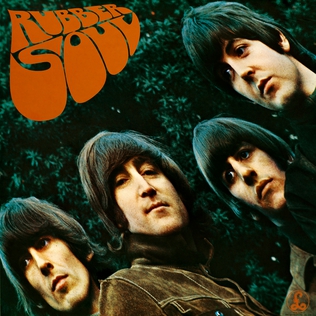
Rubber Soul is the sixth studio album by the English rock band the Beatles. It was released on 3 December 1965 in the United Kingdom on EMI's Parlophone label, accompanied by the non-album double A-side single "Day Tripper" / "We Can Work It Out". The original North American release, issued by Capitol Records, contains ten of the fourteen songs and two tracks withheld from the band's Help! (1965) album. Rubber Soul was described as an important artistic achievement by the band, meeting a highly favourable critical response and topping sales charts in Britain and the United States for several weeks.

Sir George Henry Martin was an English record producer, arranger, composer, conductor, and musician. He was commonly referred to as the "fifth Beatle" because of his extensive involvement in each of the Beatles' original albums. Martin's formal musical expertise and interest in novel recording practices facilitated the group's rudimentary musical education and desire for new musical sounds to record. Most of their orchestral and string arrangements were written by Martin, and he played piano or keyboards on a number of their records. Their collaborations resulted in popular, highly acclaimed records with innovative sounds, such as the 1967 album Sgt. Pepper's Lonely Hearts Club Band—the first rock album to win a Grammy Award for Album of the Year.
Jennifer Jean Warnes is an American singer and songwriter who has performed as a vocalist on a number of film soundtracks. She has won two Grammy Awards, in 1983 for the Joe Cocker duet "Up Where We Belong" and in 1987 for the Bill Medley duet "(I've Had) The Time of My Life". Warnes also collaborated closely with Leonard Cohen.

"A Day in the Life" is a song by the English rock band the Beatles that was released as the final track of their 1967 album Sgt. Pepper's Lonely Hearts Club Band. Credited to Lennon–McCartney, the opening and closing sections of the song were mainly written by John Lennon, with Paul McCartney primarily contributing the song's middle section. All four Beatles played a role in shaping the final arrangement of the song.

"When I'm Sixty-Four" is a song by the English rock band The Beatles, written by Paul McCartney and released on their 1967 album Sgt. Pepper's Lonely Hearts Club Band. It was one of the first songs McCartney wrote; he was about 14, probably in April or May 1956. The song was recorded in a key different from the final version; it was sped up at the request of McCartney to make his voice sound younger. It prominently features a trio of clarinets throughout.
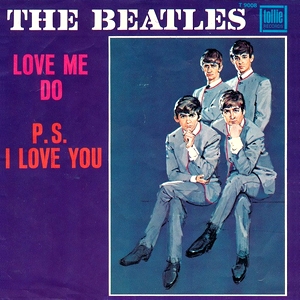
"Love Me Do" is the debut single by the English rock band the Beatles, backed by "P.S. I Love You". When the single was originally released in the United Kingdom on 5 October 1962, it peaked at number 17. It was released in the United States in 1964 and topped the nation's song chart. Re-released in 1982 as part of EMI's Beatles 20th anniversary, it re-entered the UK charts and peaked at number 4. "Love Me Do" also topped the charts in Australia and New Zealand.

"You Won't See Me" is a song by the English rock band the Beatles from their 1965 album Rubber Soul. It was written by Paul McCartney and credited to Lennon–McCartney. As with songs such as "We Can Work It Out" and "I'm Looking Through You" from the same period, the lyrics address McCartney's troubled relationship with Jane Asher and her desire to pursue her career as a stage and film actress. The Beatles recorded the song during what author Mark Lewisohn describes as a "marathon" final recording session for Rubber Soul, to ensure the album's pre-Christmas release.
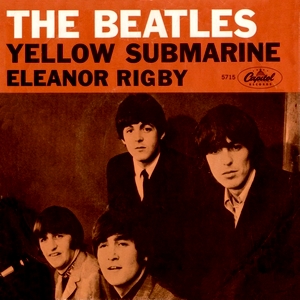
"Eleanor Rigby" is a song by the English rock band the Beatles from their 1966 album Revolver. It was also issued on a double A-side single, paired with "Yellow Submarine". Credited to the Lennon–McCartney songwriting partnership, the song is one of only a few in which John Lennon and Paul McCartney later disputed primary authorship. Eyewitness testimony from several independent sources, including George Martin and Pete Shotton, supports McCartney's claim to authorship.
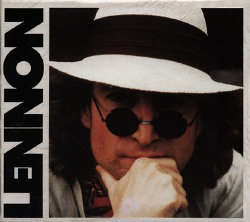
Lennon is a four-CD box set compilation, featuring highlights from the solo musical career of John Lennon. It was released in 1990 and is not to be confused with the 2015 box set of the same name, which comprised Lennon's eight original studio albums on vinyl LPs.
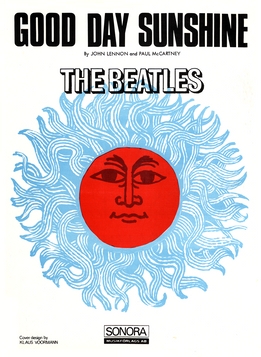
"Good Day Sunshine" is a song by the English rock band the Beatles from their 1966 album Revolver. It was written mainly by Paul McCartney and credited to the Lennon–McCartney partnership. McCartney intended it as a song in the style of the Lovin' Spoonful's contemporaneous hit single "Daydream". The recording includes multiple pianos played in the barrelhouse style and evokes a vaudevillian mood.
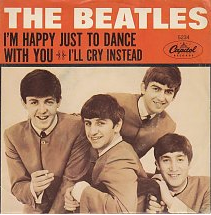
"I'm Happy Just to Dance with You" is a song written by John Lennon and Paul McCartney and recorded in 1964 by the English rock band the Beatles for the film soundtrack to A Hard Day's Night. Lead vocals are by George Harrison, whose performance in the film marked the first mass media depiction of Harrison singing lead.
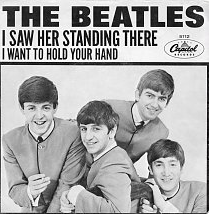
"I Saw Her Standing There" is a song by the English rock band the Beatles, written by Paul McCartney and John Lennon. It is the opening track on the band's 1963 debut UK album Please Please Me and their debut US album Introducing... The Beatles.

"I'll Get You" is a song by the English rock band the Beatles, written by John Lennon and Paul McCartney, and released by the Beatles as the B-side of their 1963 single "She Loves You". The song was initially titled "Get You in the End".
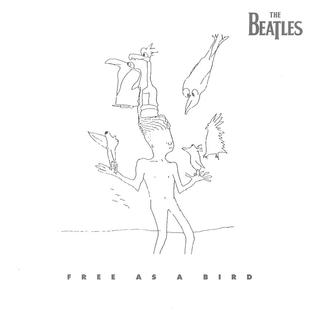
"Free as a Bird" is a single released in December 1995 by English rock band the Beatles. The song was originally written and recorded in 1977 as a home demo by John Lennon. In 1995, 25 years after their break-up and 15 years after Lennon's murder, his then surviving bandmates Paul McCartney, George Harrison and Ringo Starr released a studio version incorporating the demo.
The Beatles Anthology is a documentary television series on the career of the Beatles. It was broadcast on UK television in six parts on ITV between 26 November and 31 December 1995, while in the United States it was seen as three feature-length episodes on ABC between 19 and 23 November 1995. It was released in greatly expanded form as an eight-volume VHS set and an eight-disc LaserDisc set on 5 September 1996. The series was re-released on DVD in 2003, with an 81-minute special-features disc.

Judy Collins Sings Lennon and McCartney is a Beatles tribute album by Judy Collins released by Wildflowers Records in 2007.

The Beatles Box is an eight-record box set of Beatles recordings, initially released on 3 November 1980 by World Records, a mail-order subsidiary of EMI. It was also issued in two formats by Reader's Digest in New Zealand, Australia and Mexico.

"Got to Get You into My Life" is a song by the English rock band the Beatles, first released in 1966 on their album Revolver. It was written by Paul McCartney and credited to Lennon–McCartney. The song is a homage to the Motown Sound, with colourful brass instrumentation and lyrics that suggest a psychedelic experience. "It's actually an ode to pot," McCartney explained.
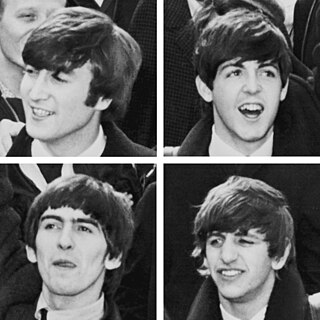
The following outline is provided as an overview of and topical guide to the Wikipedia articles available about the Beatles from their formation through their break-up; it does not include information about members' solo careers.


















